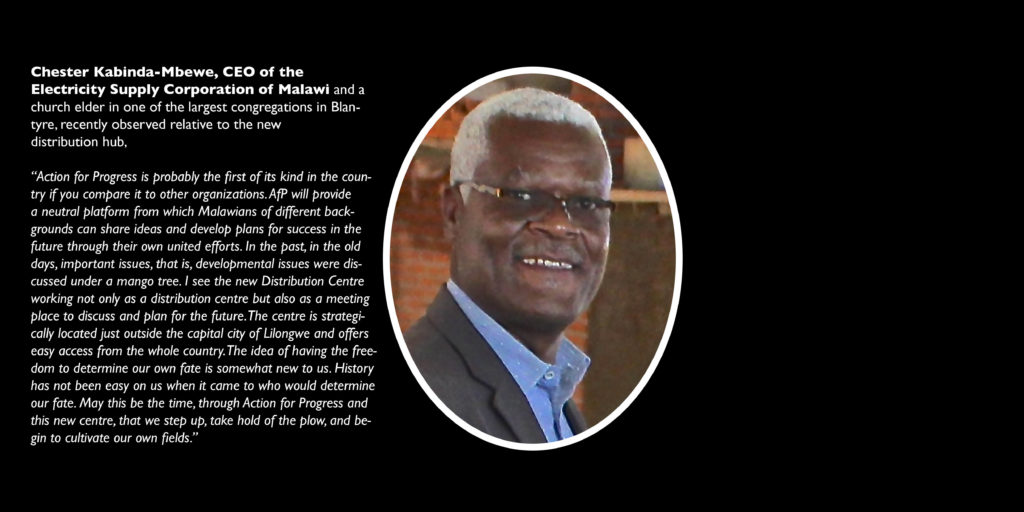Future Will Not Mimic the Past
Lilongwe, Malawi … Forty percent of the population of Malawi is under the age of 15. It is a stunning statistic and indicates major changes and exciting potential for the future. More children than ever before are going to school, and more and more are studying abroad. Television became a reality on 1 April 1999 when Malawi launched its first television network 35 years after gaining independence. More and more visitors and tourists are entering the country and bringing additional knowledge of the world beyond Malawi.
This means one of two things, a more educated population no longer bound only by the patterns of the past, one that is ready to peacefully embrace a bold new future, or a generation that will struggle to break the bonds of a past they are no longer willing to accept. This can be a peaceful transition and one where all sides work together for a future that holds great promise for Malawi, or it can come under strains that become more and more difficult to manage.
Positive Change Through Peace
Through more than 25 years we have watched the kind and gentle people of Malawi seek positive change through peaceful means much more successfully than most of the rest of Africa, and for that matter, with more success than much of the rest of the world. What other nation can maintain a record of not invading a neighbor, or being invaded by a neighbor? What other emerging world nation can champion on-going free elections where Presidents, members of Parliament, and other public officials are elected time and again through peaceful elections. A beacon of promise for sure.
Formation of Action for Progress
Working in Malawi for over a quarter of a century it seems evident a different approach to humanitarian aid is necessary. The maturity if this nation of people seems to demand it. Not aid as is done so often that creates a dependency on the aid organization or giving nation, but aid that helps develop greater independence and more successful leadership. This was one of the goals when the Malawi Project was approached with the proposal for the formation of Action for Progress.
Nothing Stronger Than an Idea
It has been said, “There is nothing stronger than an idea whose time has come.” Many of us believe it is time to review the way we have been doing missions for the past 50 years and to measure the effectiveness of our methods. Then perhaps it would be good to sit down with the people most affected, the people in the emerging nation, and ask “them” how they feel aid would be most effective. This is exactly the plan that encompasses the new distribution center for Action for Progress and the Malawi Project. It will be far more than just a place to sort, pack, and prepare goods for nationwide distribution. If all goes according to plan it will be a place to chart a much more effective future for an entirely new generation.
Action for Progress Confronts the Task
Chester Kabinda-Mbewe, Head of Fiber Optic Division of ESCOM of Malawi and a church elder in one of the largest congregations in Blantyre, recently observed relative to the new distribution hub,
“Action for Progress is probably the first of its kind in the country if you compare it to other organizations. AfP will provide a neutral platform from which Malawians of different backgrounds can share ideas and develop plans for success in the future through their own united efforts. In the past, in the old days, important issues, that is, developmental issues were discussed under a mango tree. I see the new Distribution Centre working not only as a distribution centre but also as a meeting place to discuss and plan for the future. The centre is strategically located just outside the capital city of Lilongwe and offers easy access from the whole country. The idea of having the freedom to determine our own fate is somewhat new to us. History has not been easy on us when it came to who would determine our fate. May this be the time, through Action for Progress and this new centre, that we step up, take hold of the plow, and begin to cultivate our own fields.”

